Alessandro Falcetta
TIFeD: a Tiny Integer-based Federated learning algorithm with Direct feedback alignment
Nov 25, 2024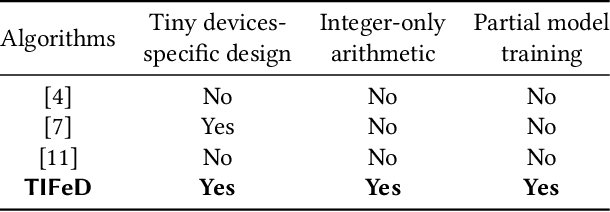
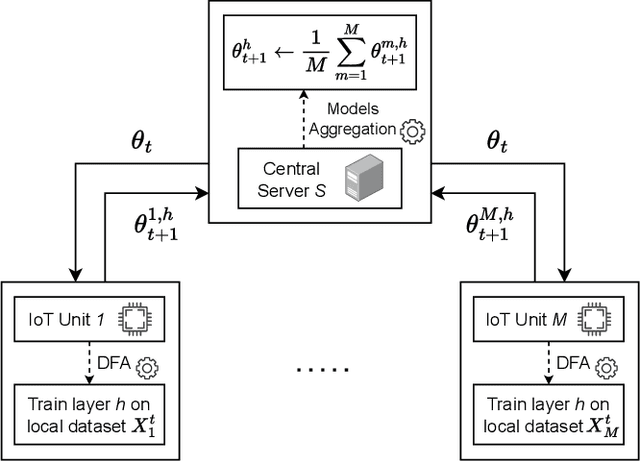
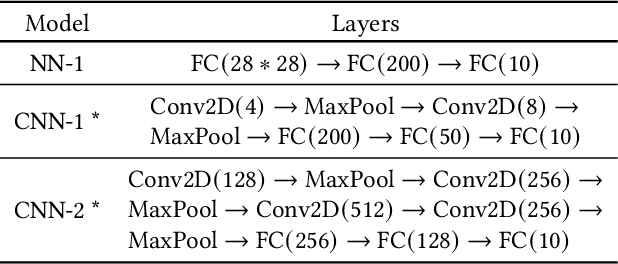
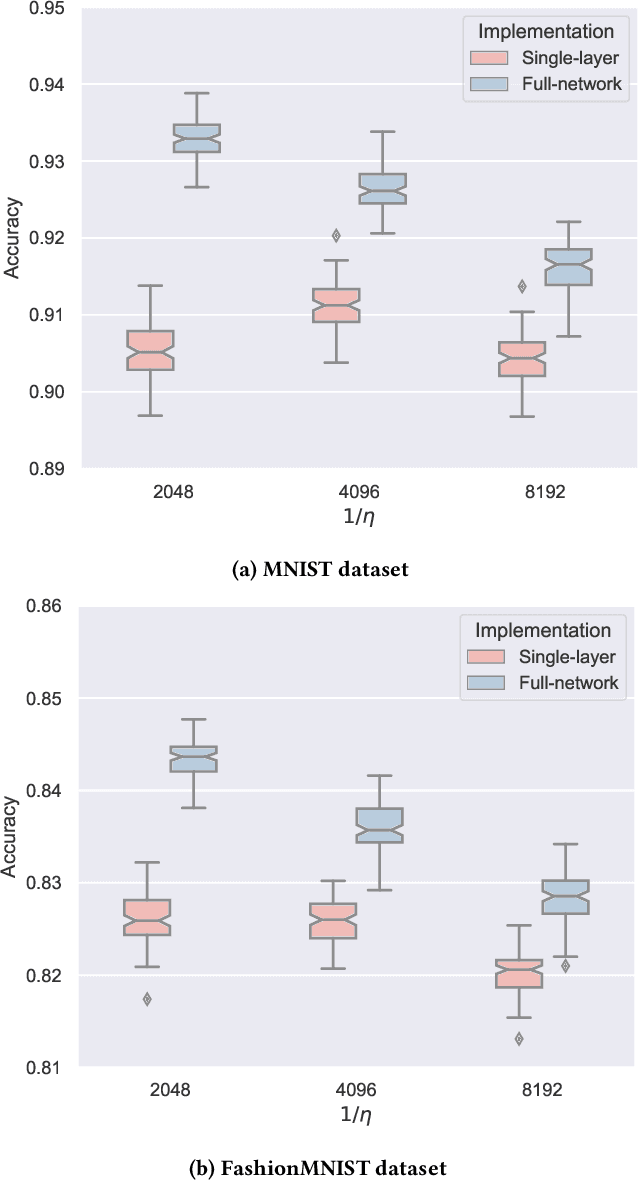
Abstract:Training machine and deep learning models directly on extremely resource-constrained devices is the next challenge in the field of tiny machine learning. The related literature in this field is very limited, since most of the solutions focus only on on-device inference or model adaptation through online learning, leaving the training to be carried out on external Cloud services. An interesting technological perspective is to exploit Federated Learning (FL), which allows multiple devices to collaboratively train a shared model in a distributed way. However, the main drawback of state-of-the-art FL algorithms is that they are not suitable for running on tiny devices. For the first time in the literature, in this paper we introduce TIFeD, a Tiny Integer-based Federated learning algorithm with Direct Feedback Alignment (DFA) entirely implemented by using an integer-only arithmetic and being specifically designed to operate on devices with limited resources in terms of memory, computation and energy. Besides the traditional full-network operating modality, in which each device of the FL setting trains the entire neural network on its own local data, we propose an innovative single-layer TIFeD implementation, which enables each device to train only a portion of the neural network model and opens the door to a new way of distributing the learning procedure across multiple devices. The experimental results show the feasibility and effectiveness of the proposed solution. The proposed TIFeD algorithm, with its full-network and single-layer implementations, is made available to the scientific community as a public repository.
A Privacy-Preserving Distributed Architecture for Deep-Learning-as-a-Service
Mar 30, 2020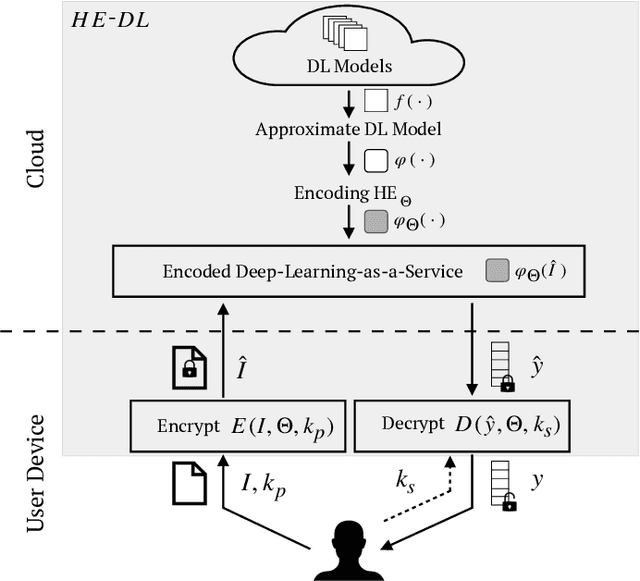

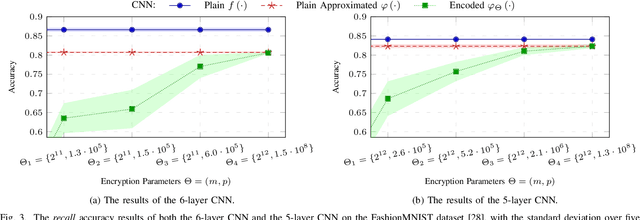
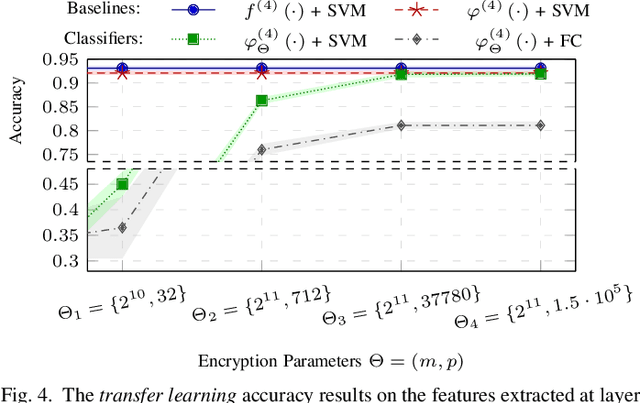
Abstract:Deep-learning-as-a-service is a novel and promising computing paradigm aiming at providing machine/deep learning solutions and mechanisms through Cloud-based computing infrastructures. Thanks to its ability to remotely execute and train deep learning models (that typically require high computational loads and memory occupation), such an approach guarantees high performance, scalability, and availability. Unfortunately, such an approach requires to send information to be processed (e.g., signals, images, positions, sounds, videos) to the Cloud, hence having potentially catastrophic-impacts on the privacy of users. This paper introduces a novel distributed architecture for deep-learning-as-a-service that is able to preserve the user sensitive data while providing Cloud-based machine and deep learning services. The proposed architecture, which relies on Homomorphic Encryption that is able to perform operations on encrypted data, has been tailored for Convolutional Neural Networks (CNNs) in the domain of image analysis and implemented through a client-server REST-based approach. Experimental results show the effectiveness of the proposed architecture.
 Add to Chrome
Add to Chrome Add to Firefox
Add to Firefox Add to Edge
Add to Edge